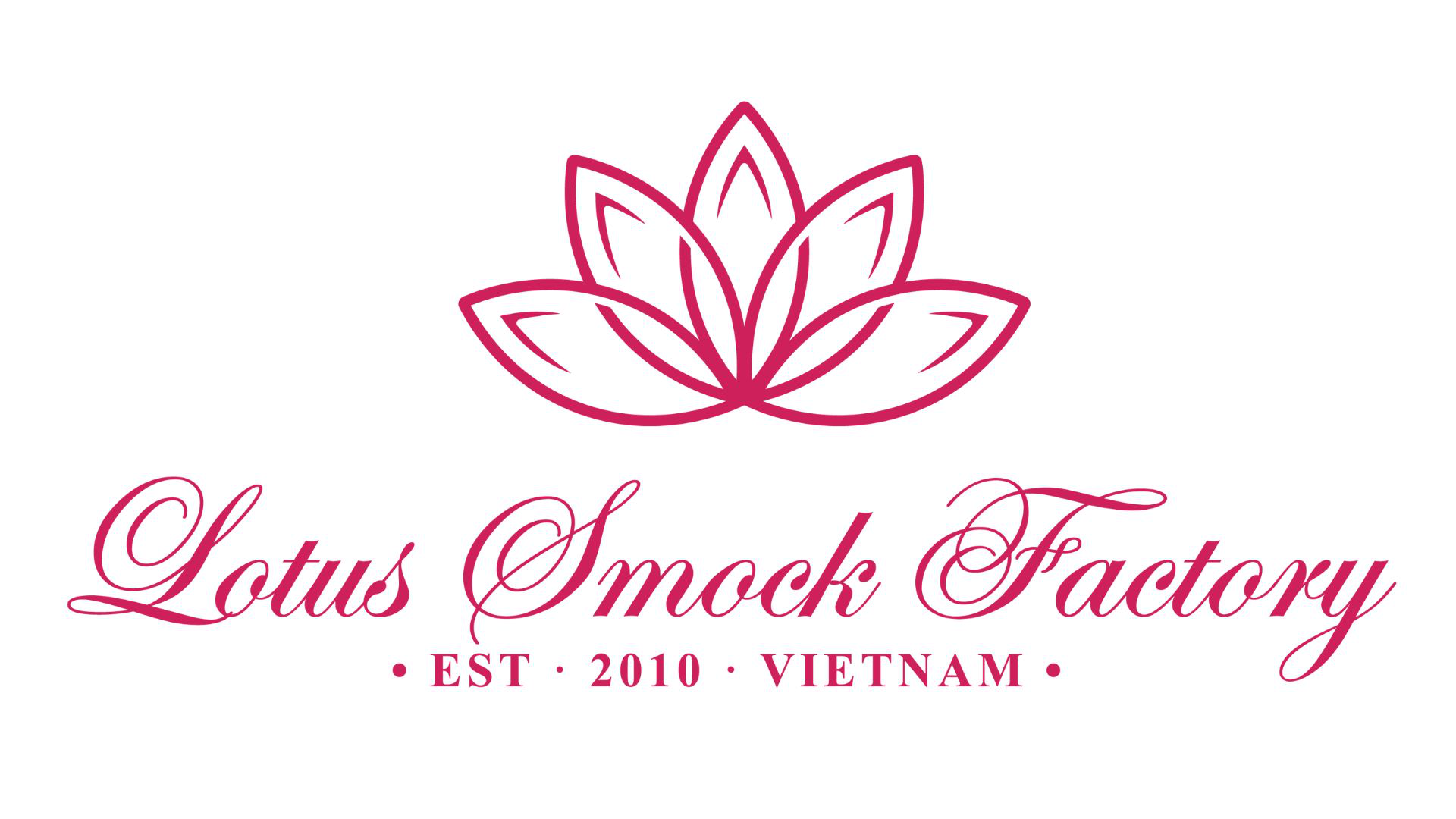Smocking vs Shirring: What Retailers Need to Know
When selling ready-made garments, understanding fabric techniques like smocking vs shirring can help you make better decisions about your inventory. These techniques affect the style, comfort, and cost of clothing, which in turn impacts customer satisfaction. Let’s break down what smocking and shirring are, how they differ, and what this means for your business.
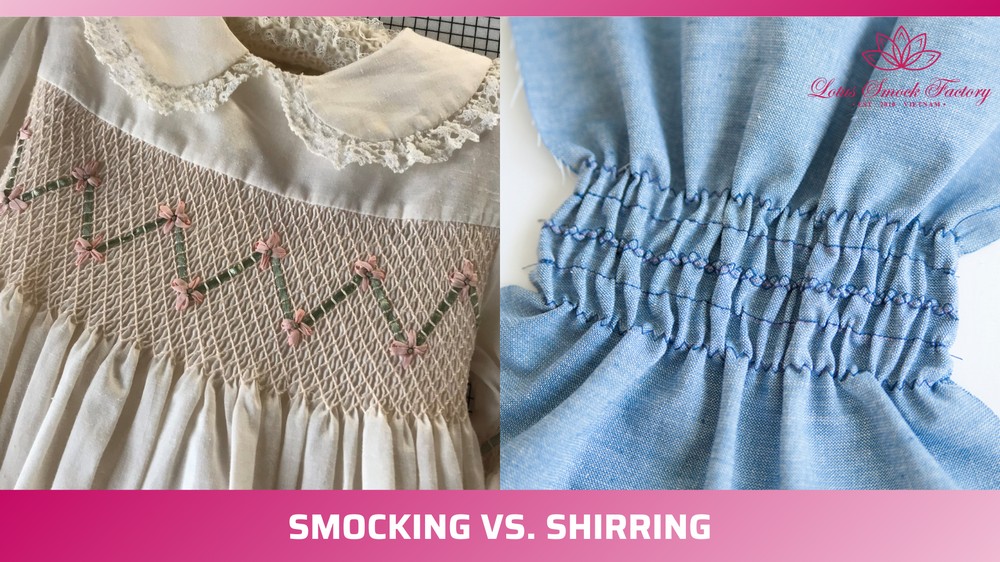
Smocking vs Shirring
1. Smocking vs. Shirring: A Comparison for Retailers
Smocking and shirring may look similar at first glance, but they each bring something unique to the world of fashion.
1.1. What is Smocking
Smocking is a traditional fabric manipulation technique that involves gathering fabric into pleats and holding it in place with embroidery stitches. This technique was originally used to make clothing stretchy before elastic was invented. Today, smocking is prized for its intricate design and vintage charm. Smocked clothing is often associated with high-quality, heirloom garments. Some typical examples of smocked clothing are fancy baby dresses or elegant tops with embroidered patterns.
Key Features of Smocking:
- Elegant Look: Smocking creates pretty designs like honeycombs or waves, giving garments a timeless and elegant look.
- Controlled Stretch: Smocking provides light elasticity without the use of elastic thread, offering a structured yet flexible fit.
- Labor-Intensive: Smocking takes time and skill, which makes these garments pricier to produce.
1.2. What is Shirring
Shirring, on the other hand, is a modern technique that uses rows of elastic thread sewn into the fabric to create gathers. It’s a simpler and faster way to add stretch and texture to clothing. This method is common in casual clothing, like summer dresses and tops.
Key Features of Shirring:
- Casual Style: Shirring creates soft, gathered lines that look relaxed and comfortable.
- High Elasticity: The use of elastic thread makes shirred clothing very stretchy and versatile.
- Cost-Effective: Shirring is less labor-intensive, reducing production costs and retail prices.
1.3. Smocking vs Shirring: Key points to note
To sum up, we have included a summary table comparing the features of smocked vs shirred:
| Feature | Smocking | Shirring |
| Method | Hand or machine embroidery on pleats | Rows of stitching with elastic thread |
| Elasticity | Light, controlled stretch | High stretch and flexibility |
| Aesthetic | Decorative, intricate patterns | Simple, uniform gathers |
| Production cost | High due to craftmanship | Lower due to simplicity |
| Durability | Long-lasting | Elastic thread may degrade over time |
| Market Appeal | Premium, botique clothing | Mass-market, casual wear |
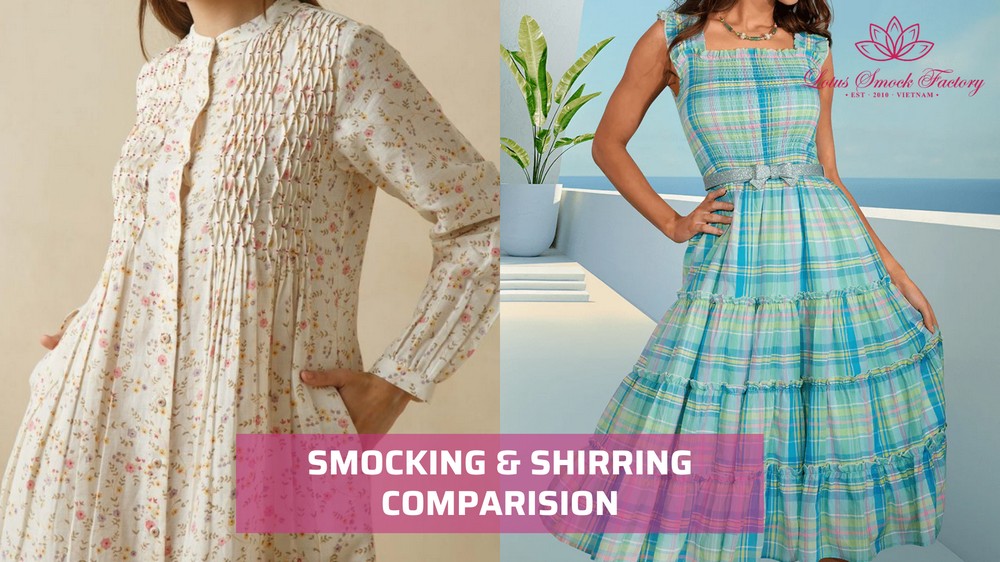
Smocking vs Shirring: Comparision
2. How Smocking and Shirring Impact Ready-Made Products
Smocking and shirring aren’t just design techniques—they play a significant role in the functionality and appeal of ready-made products.
2.1. Design and Aesthetic Appeal
Both smocking and shirring can transform simple garments into standout pieces by adding stretch and comfort to them.
- With smocking: The garments look elegant and hand-crafted. These pieces are often seen in baby clothes, formalwear, and boutique designs. Customers who value tradition and beauty are drawn to smocked clothing.
- With shirring: The clothes are perfect for trendy and casual styles. Shirring works well for sundresses, summer tops, and skirts that prioritize comfort and versatility.
2.2. Cost and Pricing
Different methods mean different in cost and pricing.
- Smocked clothing: Takes more time and effort to make, which increases its cost. These items are typically positioned as premium products, attracting customers willing to pay for craftsmanship.
- Shirred clothing: Quicker to produce and more affordable. It appeals to budget-conscious shoppers looking for stylish but practical garments.
2.3. Fit and Functionality
By introducing stretch and shaping, smocking and shirring both ensure garments are comfortable and flattering. However, there are some difference here and there.
- Smocking: Offers light stretch and structure, making it great for tailored designs. It’s commonly used in garments that need to hold their shape.
- Shirring: Stretchier, making clothing more size-inclusive and comfortable. It’s ideal for casual wear and warm-weather outfits.
2.4. Durability
The way smocking or shirring is applied can affect the longevity of the fabric and garment, ensuring they stand up to wear and tear over time.
- Smocked stitches: Strong and hold up over time, making the garments durable and long-lasting. Many smocked items, especially children’s clothing, can even be passed down as heirlooms.
- Shirred garments: Less durable than smocked clothing. Over time, the elastic thread can weaken, reducing the stretch and fit of the clothing.

Smocking and shirring impact ready-made products
3. Tips for Retailers: Choosing between Smocking vs Shirring
Choosing between smocking and shirring depends on the target customer base you want to cater to. Each technique has its own unique market appeal.
For Boutique Stores:
- Focus on smocked clothing to attract customers looking for high-quality, unique designs.
- Highlight their craftsmanship and timeless beauty for special occasions like weddings, christenings, or holidays.
For Mass-Market Retailers:
- Stock shirred clothing for everyday shoppers who value comfort and affordability.
- Emphasize their practicality and trendy designs in your marketing efforts.
Seasonal Trends:
- Smocked clothing is a great addition to spring and summer collections, offering light and elegant styles.
- Shirred garments work year-round but are especially popular during warmer months.
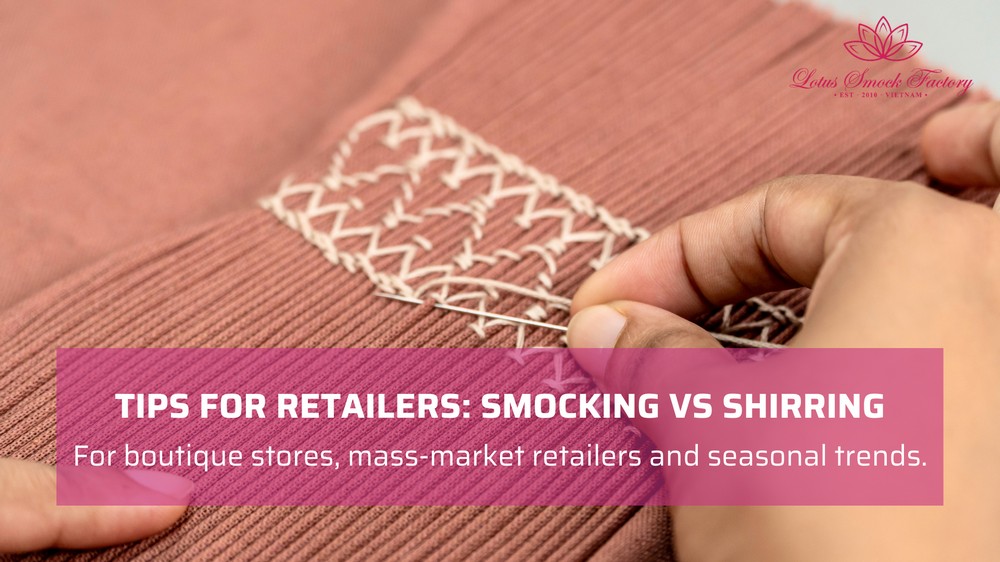
Tips for retailers
4. Lotus Smock – A Trusted Smocked Clothing Supplier
If you are a retailer or store owner looking for premium, customizable smocked/shirred clothing options, Lotus Smock is the perfect choice for you. There are three key factors set us apart from other smock factories:
- Highly-skilled Craftsmanship
At Lotus Smock, we take pride in combining the traditional art of hand-smocking with efficient production techniques. Each garment is carefully made to reflect exceptional quality and attention to detail, while still meeting the demands of large orders. With us, you’ll get beautifully crafted, durable pieces that align with premium market standards.
- Personalization
We also offers a variety of customization options, from monograms and initials to custom colors, allowing you to create standout designs tailored to your appeal. These personalized touches are perfect for gifts or special occasions, helping you build customer loyalty and set your store apart.
- Versatile
From timeless classics to seasonal and holiday-themed designs, Lotus Smock presents a wide variety of smocked clothing to keep your inventory fresh year-round. Whether it’s Easter, Christmas, or everyday wear, we’ve got styles to match every occasion and keep your store stocked with something new and exciting.
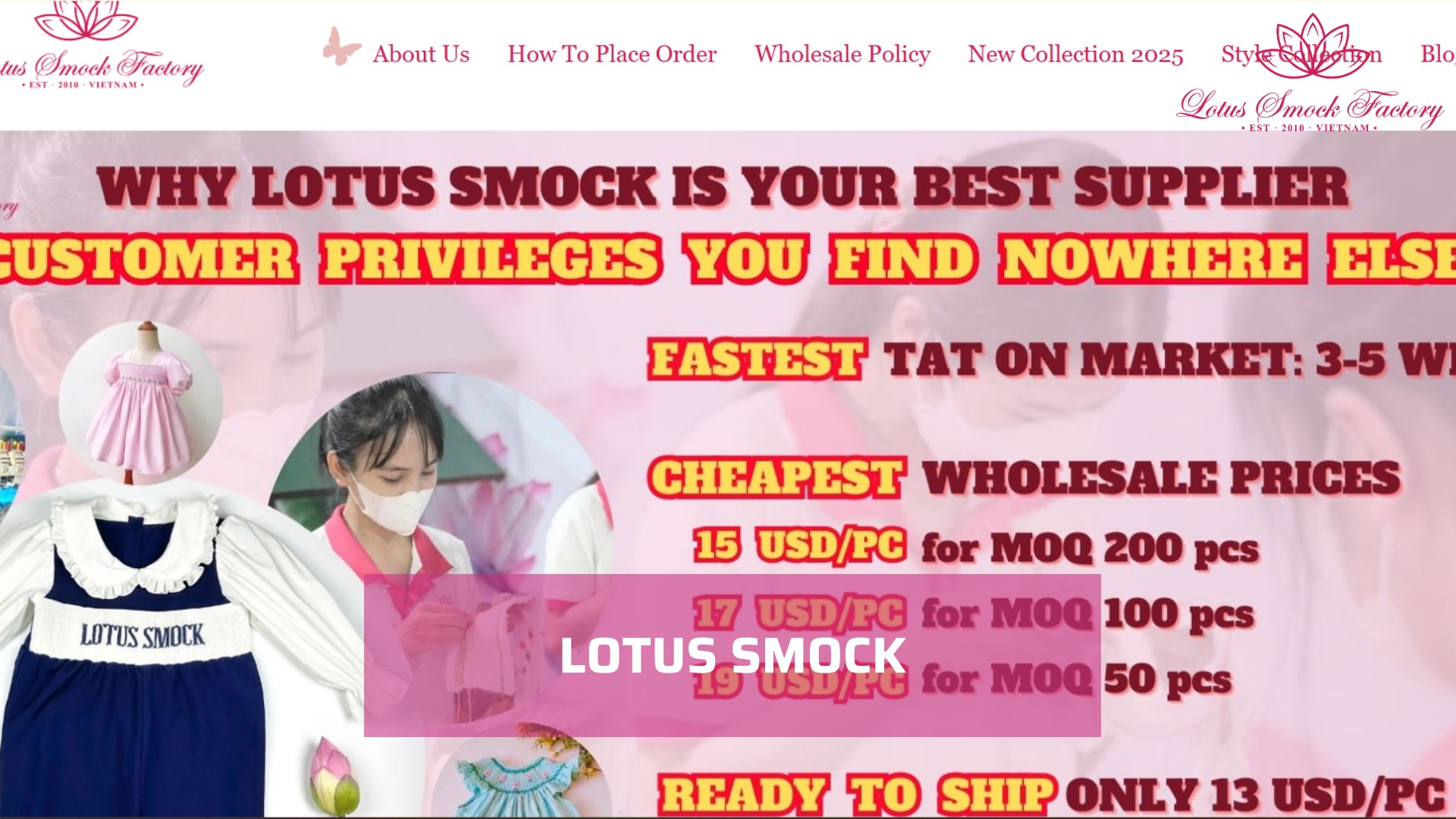
Lotus Smock Factory
Don’t hesitate to reach out to us to discover the best options for your retail inventory! Contact Lotus Smock at:
- Facebook: facebook.com/lotussmockfactory
- WhatsApp: +84 83 333 3498
- Youtube: youtube.com/@LotusSmockFactory
